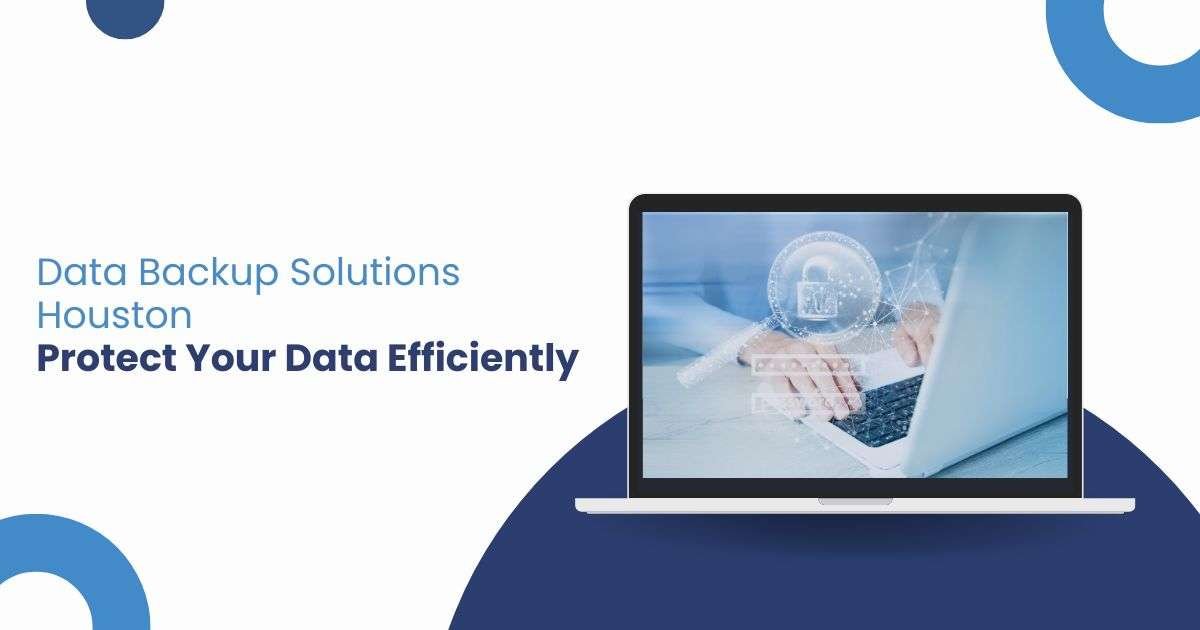Data security is critical in the fast-paced field of IT administration. The risk of data loss is very real given the amount of digital information that is constantly expanding. This thorough guide explores the nuances of Houston data backup solutions and explains why IT management services can’t function without them.
Data Backup’s Significance in IT Management Services:
Robust IT management services are built on the foundation of secure data backup services. Businesses in today’s digital environment mostly depend on data to inform operations and decision-making. The consequences of data loss might be disastrous if proper backup procedures are not followed. Stakes range from monetary losses to damaged reputations. It is essential to put trustworthy data backup Houston solutions into place to reduce these risks and guarantee business continuity.
Knowing Data Backup: Foundations and Beyond:
Fundamentally, data backup solutions Houston entail making duplicate copies of important data to prevent loss. Still, there’s more that goes into the process than merely reproduction. It involves learning about the many backup techniques, such as differential, incremental, and full backups, and choosing the best strategy based on goals for recovery time (Regional learning organizations), data volume, and change frequency.
Types of Managed IT Data Backup Solutions:
IT administrators possess an abundance of tactics for data backup solutions Houston that are customized to meet individual requirements and preferences. These consist of cloud-based solutions, disk-based backups, and conventional tape backups. IT administrators can create a backup plan that fits the needs of their company by considering variables including cost, scalability, and reliability.
Applying a Sturdy Data Backup Plan in place was: Best Practices
A data backup plan’s ability to succeed depends on following best practices. This entails creating explicit recovery protocols, encrypting critical data, and performing routine backups. Moreover, to guarantee the efficacy and integrity of the backup system, frequent testing and validation are necessary.

The best solutions for Cloud Backup in IT Managed Services:
Cloud backup solutions have been more popular in recent years due to their affordability, scalability, and flexibility. IT managers can relieve themselves of the responsibility of overseeing physical infrastructure while guaranteeing that data is always available from any location at any time by utilizing the cloud.
Cloud Storage vs. On-Premises Backup: Things IT Managers ought to understand
The choice between cloud and on-premises backup depends on a number of variables, such as budgetary restraints, regulatory needs, and data sensitivity. Scalability and ease of maintenance are two advantages of cloud backups over on-premises solutions, which give more control and customization. To choose the best course of action for their company, IT managers must carefully consider these variables.
Data backup and disaster recovery planning:
Planning for disaster recovery and data backup go hand in hand because they help companies recover swiftly from unforeseen events like cyberattacks and natural catastrophes. IT manage services that incorporate backup and recovery into their disaster recovery plans can minimize downtime and mitigate the impact of disruptions.
Automation of Data Backup: Optimizing IT Operations:
Solutions for automated data backups simplify IT operations, lightening the workload of IT personnel and lowering the possibility of human error. Automation helps businesses increase productivity and guarantee that data is always safeguarded. Examples of such jobs include scheduling backups and keeping an eye on system health.
Data Backup Security: Protecting others Your Electronic Assets
Data backup security is crucial, particularly in this day and age of constant cyberthreats. To prevent unwanted access or tampering, multi-factor authentication, access limits, and encryption are crucial security measures. Furthermore, the maintenance of data integrity and confidentiality depends on compliance with industry best practices and compliance requirements.
IT Management Data Backup Testing and Validation:
To guarantee that data backup systems are effective, regular testing and validation are essential. IT administrators can find vulnerabilities in their backup systems and take proactive measures to fix them by modeling real-world scenarios and holding recovery exercises. By being proactive, the chance of data loss is reduced and overall resilience is improved.
Scalability of Data Backup Plans for Expanding Enterprises:
Businesses’ needs for data backups change as they grow. Scalability becomes a crucial factor, requiring backup systems that can handle increasing data volumes without sacrificing dependability or performance. Because cloud-based backup solutions are naturally scalable, they are perfect for companies that are expanding quickly.
Regulation and Compliance Aspects of Data Backup:
In the current regulatory climate, compliance with industry standards and data protection legislation is required. IT administrators need to make sure that their data backup procedures comply with all relevant laws, including GDPR, HIPAA, and PCI DSS.
Systems for monitoring and alerting data backups:
Effective data backup plans must include proactive monitoring and warning systems. IT administrators can spot problems in real time and take action before they get worse by regularly checking backup procedures and system health. Automated warnings improve responsiveness even more, allowing IT teams to quickly resolve problems.
Affordable Data Backup Options for IT Administration:
Cost is an important factor to take into account while backing up data, especially for firms that are tight on funds. IT administrators can secure data reliably and affordably by selecting affordable options like managed data backup and recovery services or cloud-based backups. Moreover, putting data deduplication and compression strategies into practice can maximize storage effectiveness and cut expenses.
Future Directions in IT Management Data Backup Technologies:
The data backup industry is always changing due to shifting business requirements and technology breakthroughs. The future of data backup is expected to be shaped by emerging trends including edge computing, blockchain technology-enabled immutable backups, and AI-driven backup analytics. IT administrators need to keep up with these changes to make sure their backup plans are still applicable and efficient.
Last Words:
An essential part of IT management services is data backup, which protects businesses from the disastrous effects of data loss. Organizations may guarantee that their data is safe and accessible in the event of an emergency by utilizing cutting-edge technologies, creating solid backup plans, and realizing the value of expert data backup services. IT managers can build resilience in their organizations and manage the intricacies of data backup with the help of this extensive guide.
With the help of this thorough guide on data backup solutions Houston for IT management services, businesses can improve their data protection tactics with practical advice and best practices. Whether you’re an experienced IT specialist or a company owner looking to protect your important data, this guide gives you the information and resources you need to reduce risks and guarantee business continuity.














